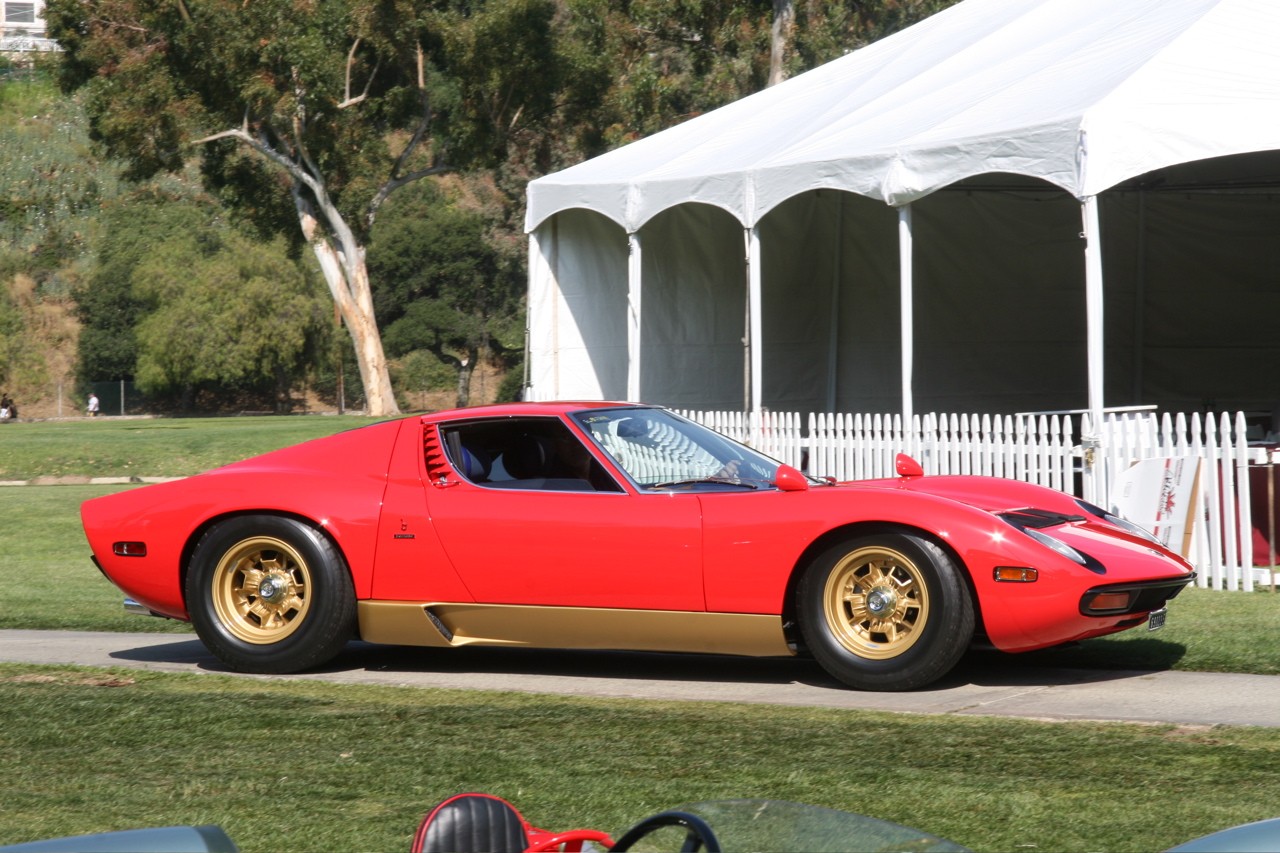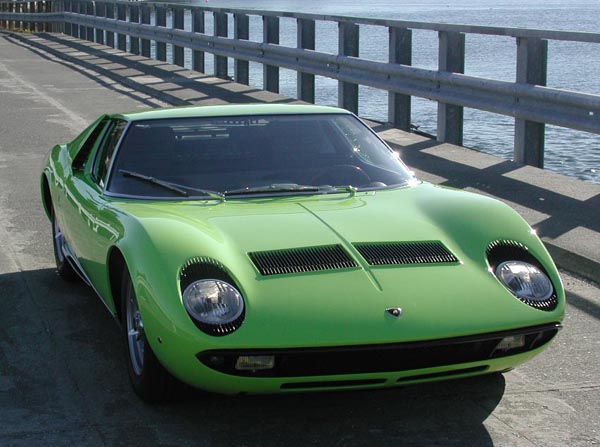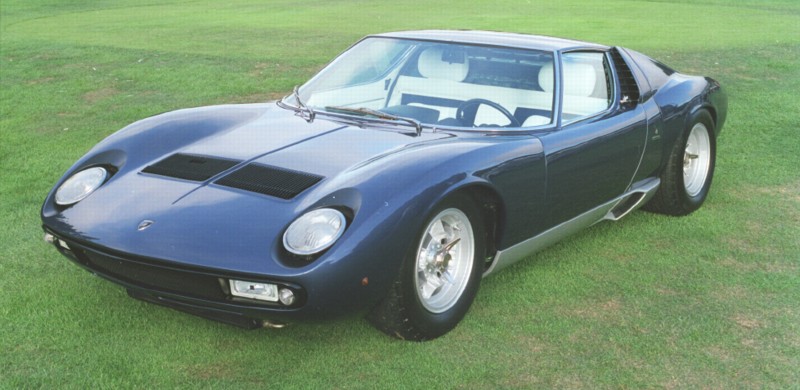
In 1963 Ferruccio Lamborghini, a wealthy tractor manufacturer, went to the Ferrari factory to meet Enzo Ferrari and complain about problems with the clutch on his Ferrari 250GT. Enzo replied by telling Lamborghini that there was nothing wrong with the car and that he should go drive his tractors because he didn't know how to drive cars. Quite mad, Ferruccio went back to his factory and had the Ferrari's transmission removed to find that the clutch was from the same manufacturer he used for his tractors. He searched his parts warehouse and found an appropriate replacement and the problem was solved. Sill furious, Ferruccio Lamborghini swore that he would never buy another Ferrari and vowed to beat him at his own game by building a better sports car. Automobili Lamborghini was born.
The 1963 350GT was the first model produced by Lamborghini which was followed by the 400GT. Both sold well but the car that put them on the map as a serious sports car company was the Miura. The chassis of the Miura was shown for the first time at the 1965 Turin Motor Show where it generated a buzz and several orders even without a production body. A body was designed by Marcello Gandini from Bertone and was unveiled at the 1966 Geneva Motor Show where it became a sensation.

P400 Miura
The early cars, known as the P400, were produced between 1966 and 1969 and used the same 3.9L V12 from the previous 400GT. The 350HP engine was mounted transversely and was a single casting along with the transaxle using the same lubrication system for both. These early cars became infamous for being a fire hazard due to the use of a particular model of Weber Carburetors intended for race cars. The carbs would build up with excess fuel while idling which would ignite when the driver attempted to accelerate. Lamborghini eventually came up with a fix that was, surprisingly, adopted by Ferrari who used the same carb in one of their cars. Approximately 275 of the P400s were produced with a price tag of around $20,000.

Miura S
In November 1968, the P400S better known as the Miura S, debuted at the Turin Motor Show. There were slight changes from the original Miura which were mostly ergonomic. There was however a bump in power of 20HP thanks to larger intake manifolds, and revised camshaft profiles. About 338 Miura S models were produced between December 1968 and March 1969.

Miura SV
The final production model Miura was the P400SV. Lamborghini again revised the camshafts and changed the carburetors to add another 15HP to engine output. The SV also featured a limited slip differential which required the engine and transmission to become separate castings with independent lubrication systems. The Miura SV also had some cosmetic changes, most noticeably the wider rear fenders to cover the new 9" wide rear wheels as well as different taillights and the loss of the "eyelashes" around the headlights.

Miura SV/J
There were also a few one-off and limited production variations of the Miura produced during the life of the car. There was the P400 Jota built meeting FIA racing requirements for group J racing and as a development mule for future Miura models. This car led to customers requesting that Lamborghini produce a Jota model. They refused to take on the expense of building the new car and instead offered an upgrade to the SV which came to be known as the SV/J. Only five of these were built by the factory. Two were new chassis and three were converted SVs. One final SV/J was built in 1987 from a leftover chassis for the brother of Patrick Mimram who owned Lamborghini at the time. A one-off roadster was also built by Bertone as a show car and still exists today. An SV/J Spyder was also created and displayed at the 1981 Geneva Motor Show. The car was actually the 1971 Geneva Show car which had been converted by the Swiss Lamborghini importer.
Aside from the early fire problems, Miuras also became somewhat notorious for being unstable at high speeds. This was mainly due to the fact that the fuel tank was in the front of the car and as it emptied, the weight over the front wheels became less and less resulting in lift being generated at the front of the car at speed. The car's performance was pretty good for it's day though as the Miura was able to hit 60MPH in about 5.5 seconds and through the 1/4 mile in the low 14 second to high 13 second range. Top speed was around 179MPH.
In 2006 Lamborghini unveiled a Miura Concept which commemorated the intoduction of the original car in 1966. The concept car is a beautiful modern interpretation of the orignal design of the Miura much like the Ford GT is to the original GT40. Unfortunately, Lamborghini has indicated that they have no intention to put the car into production.

2006 Miura Concept
The Miura was the first car to be coined a "supercar" by the automotive press. In 2004, Sports Car International named the Miura number four on their list of the Top Sports Cars of All Time. Most importantly, it proved that Lamborghini could be a player in the exotic sports car market and gave Ferrari some competition.

















No comments:
Post a Comment